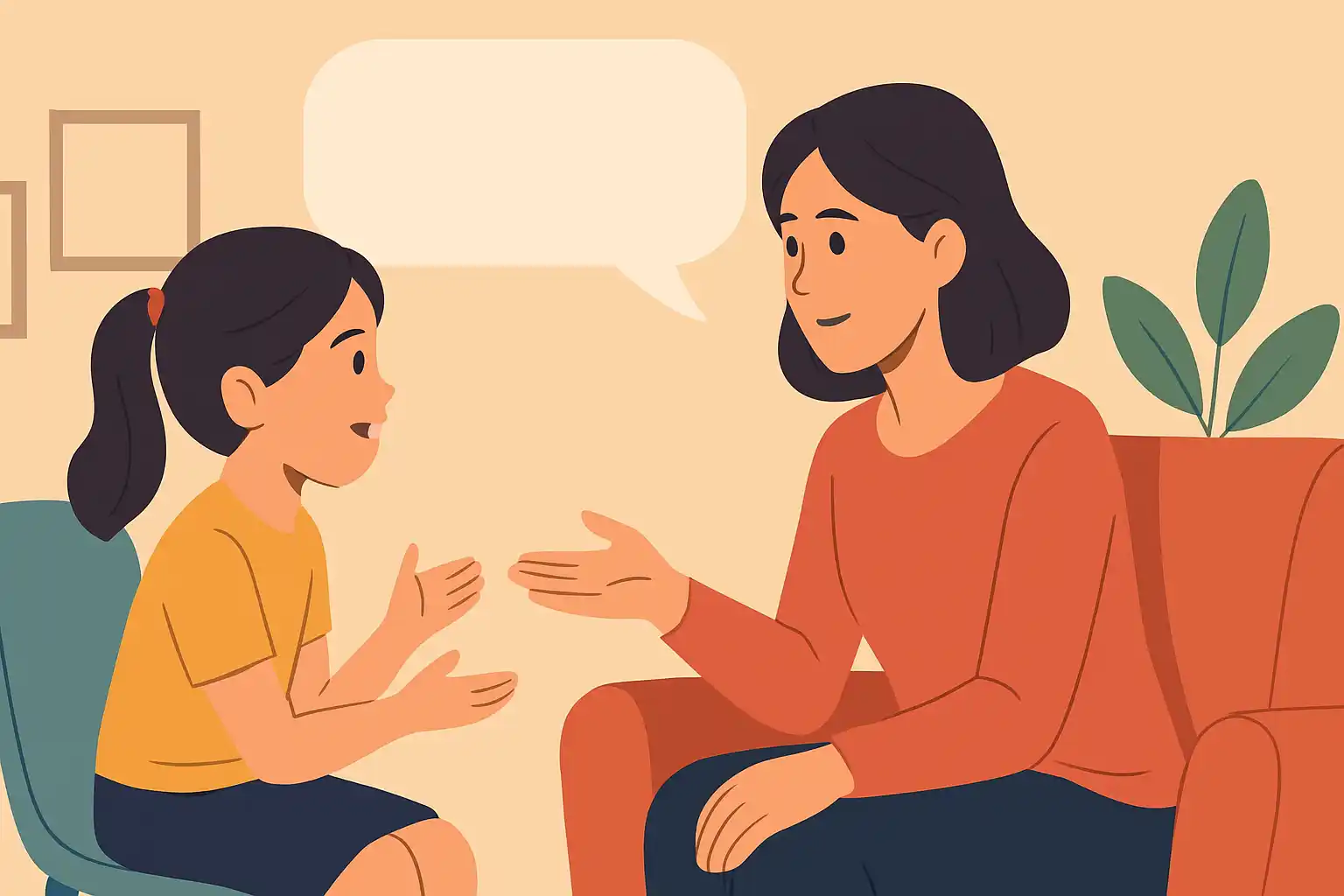Parenting is a complex and rewarding journey, you might know it yourself. Love and care are crucial elements but expressing them right also matters. Effective communication is the heart of any strong relationship, especially between parents and children. Still, as a parent, you want to balance between kindness and protection. You can use modern technologies to watch your children out, such as to track a phone by the number, instead of personally monitoring them. Does that really help to improve your dialog? And what can help you truly?
We will share proven tips that get you closer to your child through an open dialog. From toddlers to teenagers, or somewhere in between, these communication strategies might improve your communication and enhance the bond you share.

Model Respectful Communication
One of the most effective ways to teach children is by setting the right example, as they constantly watch and learn from parents. When they see you model respectful communication, they are more likely to adopt these behaviors themselves.
When you model respectful communication, you’re teaching your children how to interact with others in a way that fosters mutual respect. This maintains harmony in your home and helps your child in social interactions outside the home.
How to Do It
Respectful communication involves treating your children with kindness, consideration, and empathy. Use polite language, express gratitude often, and show genuine interest in what they are saying. For example, instead of simply saying “Good job” when your child helps out with a task, you could say, “Thank you for helping me set the table.”
It is also important to handle disagreements calmly. When conflicts arise, remain composed, speak respectfully, and avoid raising your voice. By showing that it’s possible to disagree without hostility, you show how to manage conflict in a healthy way.
Another important aspect is recognizing your child’s need for personal space and boundaries. If your child is spending time with their friends, you can refrain from interrupting their moment. If you need to stay informed about their whereabouts, use tools like Number Tracker to track their location without constant texting or calling. This is how you give them space while maintaining a sense of security.

Practice Active Listening
Active listening is a fundamental skill in any meaningful relationship. Show it especially between parents and children, as they’ll remember this positive experience from you. When you actively listen to your child, it reinforces that their thoughts and feelings matter. It also encourages them to open up more, which is vital for healthy emotional development. It allows your child to share concerns and uneasy feelings without fear of judgment.
How to Do It
Active listening requires your full attention. Put away distractions, such as your phone or computer, and focus entirely on your child when they are speaking. Make eye contact, nod to show you’re listening, and give verbal cues like “I understand” or “I see.” This shows your child that you are fully engaged in the conversation.
Another important aspect of active listening is paraphrasing. When your child shares something important with you, repeat back what you’ve heard in your own words to ensure you’ve understood their feelings and thoughts correctly. For instance, if your child says, “I felt left out at school today,” you might respond with, “That sounds tough; it seems like you wanted to be included.” This not only shows empathy but also helps your child feel that their emotions are valid.
Don’t jump in with solutions or advice immediately unless your child asks for it. Sometimes, children need someone to listen without offering an answer. Advicing too soon can make them feel unimportant or that you’re not fully present at the moment.
Formulate Statements Positively
The words we choose in conversations have a profound impact on children’s self-esteem, behavior, and overall outlook. Positive language influences how children see themselves, their abilities, and their relationship with you. Focus on praise that acknowledges effort rather than innate ability.
It helps children feel valued and motivated, rather than discouraged or uncertain about their strength. In further harsh or critical environment, it will help them to go on sustainably.
How to Do It
Positive language is all about focusing on what’s right, rather than highlighting what’s wrong. When talking to your child, use affirming words that encourage their progress and efforts. For example, instead of saying, “You’re so smart,” which places emphasis on their inherent intelligence, try saying, “I’m proud of how hard you worked on that project.”
In addition to focusing on effort, it’s important to acknowledge the process. Praise your child for perseverance, creativity, or problem-solving skills rather than just the outcome. For example, if your child struggles with a puzzle but finally completes it, you can say, “I love how you didn’t give up. You really stuck with it, and that’s what matters.”
It’s also essential to avoid negative labels, such as calling your child “lazy” or “irresponsible.” These labels harm self-esteem and show them as inadequate. Instead, focus on the behavior or action itself: “You didn’t finish your homework on time. Let’s talk about how we can do better next time.”
Think of How You Ask Questions
Open-ended questions are an excellent way to deepen conversations and help children articulate their thoughts and feelings. Yes/no questions limit a child’s response, and open-ended ones invite to share emotions, opinions, and experiences. It fosters autonomy and trust, and makes your child more comfortable about sharing their thoughts. Additionally, open-ended questions help your child develop important communication skills, including self-reflection and emotional articulation.
How to Do It
Instead of asking questions that can be answered with a simple “yes” or “no,” encourage your child to elaborate by asking open-ended questions. For example, instead of asking, “Did you have a good day?” ask, “What was the best part of your day?”
Open-ended questions can also help your child express their feelings and gain clarity about their emotions. Instead of asking, “Are you upset?” you could say, “How are you feeling right now?” or “What’s going on in your mind?”
As your child grows older, open-ended questions become even more important. Teenagers, in particular, may resist direct questioning or shut down when faced with probing inquiries. Try asking questions that promote reflection, not a fully clear answer. When something uneasy happens, try wondering with them “What do you think about that situation?” or “How do you feel about the way that turned out?”
Such tips can always help in your conversations. When you get stuck in a dialogue with your teen child again, remember to show kindness and love instead of closing from them. Even if they are having a harsh period, they still love you. With building a conversation the right way, you’ll show how to express love and affection and solve conflicts healthily.
